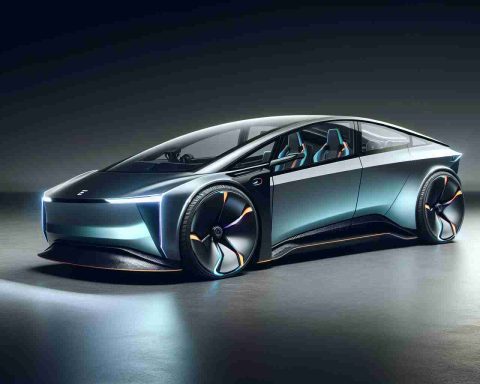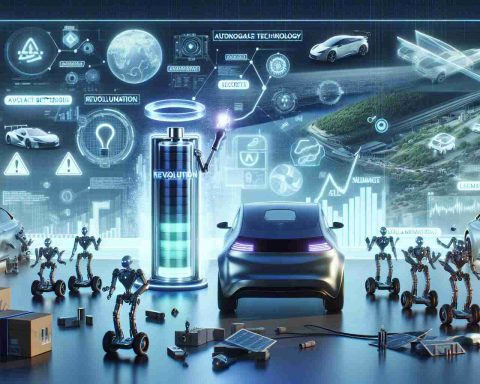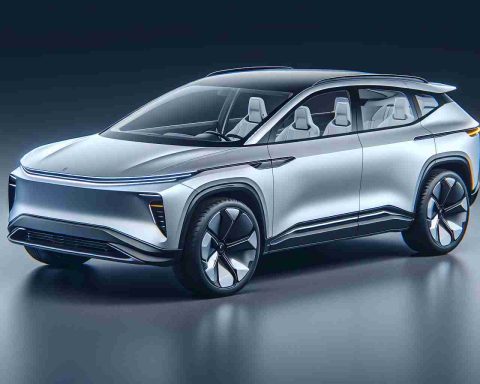Students at Heartland Community College Get Ahead with EV Training
In a groundbreaking move, Heartland Community College is now offering a specialized certificate program for aspiring electric vehicle charging technicians. This new initiative enables students to gain the essential skills required to install and maintain electric vehicle chargers in both commercial and residential settings.
The certification was recently approved by the board of trustees and can be earned in just one semester, consisting of seven credit hours. The Dean of Career and Technical Education, Adam Campbell, emphasized the importance of this program, noting that regardless of personal views on electric vehicles, the technology is becoming increasingly integral to our daily lives.
Rivian Automotive, a leader in the electric vehicle sector with manufacturing facilities nearby, has shown support for this educational venture. They are collaborating with local community colleges to encourage students to explore careers in the growing electric vehicle market.
As the demand for EV chargers expands, students trained in this field will not only find opportunities within the electric vehicle industry but also in various sectors that require knowledge of complex electrical systems. Graduates will be ready for entry-level jobs in utility companies or as independent contractors, granting them flexibility in their career choices.
This initiative opens doors for students, setting them up for success in an evolving job market. As technology continues to advance, the potential for career growth in the electric vehicle field is immense.
The Broader Implications of Electric Vehicle Training Programs
The rise of electric vehicle (EV) training programs, such as the one at Heartland Community College, transcends mere academic advancement; it signals significant social and economic shifts. As the global economy increasingly pivots toward sustainable practices, programs designed to equip technicians demonstrate a profound recognition of the growing demand for clean energy solutions.
The transition to electric vehicles not only aligns with environmental stewardship but also fosters a cultural shift. As consumer preferences gravitate towards sustainability, the visibility of EVs on the roads reflects a collective societal commitment to reducing carbon footprints. Local economies stand to benefit, too, as communities invest in green technologies, creating new jobs and stimulating economic growth in sectors like renewable energy and electric infrastructure.
From an environmental standpoint, the expansion of EV charging infrastructure is crucial for mitigating climate change effects. Improved access to charging facilities can encourage a wider acceptance of electric vehicles, ultimately leading to a decrease in greenhouse gas emissions. As cities modernize their transportation frameworks, future trends suggest a marked decrease in traditional gas-powered vehicles.
Long-term significance of these initiatives cannot be overstated. Beyond immediate job placement, graduates from such programs emerge as pivotal players in the broader narrative of energy transition. As the global community strives for net-zero emissions by 2050, educational institutions must continue to adapt curriculums to align with these environmental goals, ensuring that a skilled, adaptable workforce is ready to meet the challenges of tomorrow’s energy landscape.
Revolutionizing Careers: Heartland Community College Launches EV Technician Program
Heartland Community College’s New EV Technician Certificate Program
Heartland Community College is at the forefront of workforce development with its newly launched certificate program for electric vehicle (EV) charging technicians. This program is designed to equip students with the vital skills necessary for installing and maintaining electric vehicle chargers in various environments, including residential and commercial spaces.
Program Overview and Structure
The approval of the certificate program by the board of trustees marks a significant step forward, allowing students to complete it in just one semester through seven credit hours. This accelerated format caters to the needs of students eager to enter the workforce quickly and aligns with the increasing demand for EV infrastructure.
Collaborations and Industry Support
A noteworthy partnership with Rivian Automotive, a prominent player in the electric vehicle manufacturing sector, enhances the program’s credibility and scope. Rivian is actively collaborating with local community colleges, including Heartland, to foster interest in careers within the burgeoning electric vehicle market. This collaboration not only provides students with insights into real-world applications but also creates a bridge between education and industry.
Career Prospects and Industry Demand
The electric vehicle charging sector is poised for significant growth. As more consumers and businesses adopt electric vehicles, the need for knowledgeable technicians will rise accordingly. Graduates of Heartland’s program can pursue Entry-level roles with utility companies or work as independent contractors, thereby enjoying flexibility in their employment opportunities.
# Use Cases
1. Residential Installations: Graduates can install home charging stations, catering to the growing number of homeowners investing in electric vehicles.
2. Commercial Applications: Students will be prepared to work with businesses looking to provide charging solutions for customers, enhancing the EV experience.
3. Utility Collaboration: Technicians can engage with utility companies for public charging infrastructure projects, which are essential for urban development.
Limitations and Challenges
While the program prepares students for various aspects of the job, potential challenges include keeping pace with rapid technological advancements in electric vehicle systems. Continuous education and training may be essential for technicians to stay ahead in this evolving field.
Pricing and Financial Considerations
The cost of the program remains competitive, offering an economical pathway to an in-demand career with relatively low financial barriers for entry. Financial aid options may be available for qualifying students, making it accessible for a broader demographic.
Future Trends and Insights
As the electric vehicle market continues to expand, experts predict an exponential increase in job opportunities within the sector. Data suggests that EV-related employment could rise by 12% annually, underscoring the importance of programs like Heartland’s in preparing the workforce for these new roles.
Conclusion
Heartland Community College’s EV technician certification program is a significant development reflecting the urgent need for skilled professionals in the electric vehicle infrastructure field. With robust support from industry leaders such as Rivian, students can look forward to a fruitful career in a sector that is not only relevant but critical to the future of transportation.
For more information about electric vehicle advancements and programs, visit Heartland Community College.


















